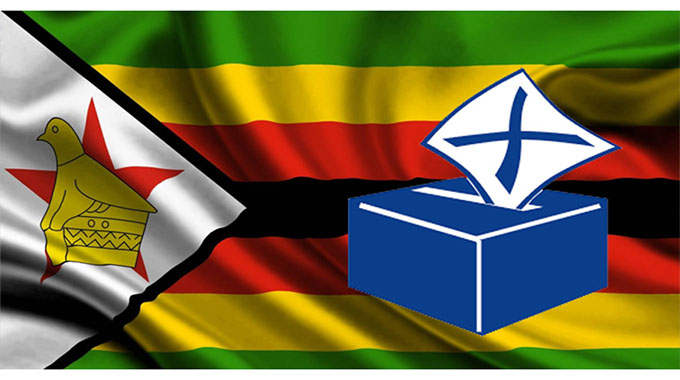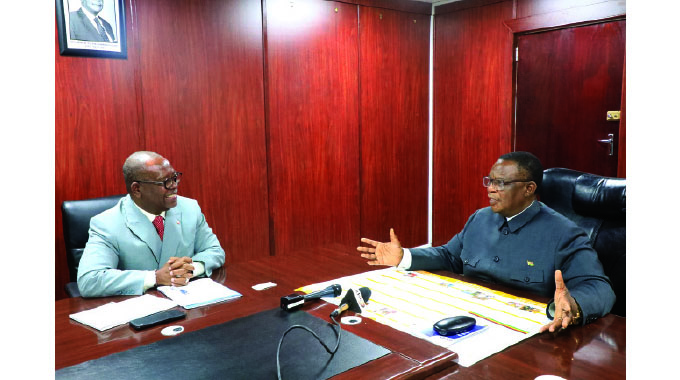EDITORIAL COMMENT: Elections need to be peaceful, results accepted

WITH the Presidential, Parliamentary and local authority elections now due in the next four to five months, Zimbabwe is moving into the preparatory stages of this contest that we see every five years.
One critical factor is the need to maintain our recent record of peaceful contest and peaceful elections. Last year we managed to hold a large block of by-elections, all delayed by the Covid-19 lockdowns, for both the House of Assembly and for local authorities and last month, the largest political party, Zanu PF, managed to line up its millions of members to vote in hotly-contested primaries.
There was hard campaigning in both, but the results were fair and everyone accepted them. There were a couple of incidents of minor violent behaviour in the by-elections, but the police investigations found that this resulted from a couple of drunks getting into a meeting and simply had to be lifted out for the process to continue peacefully.
The police have been gearing up for the mid-year poll, for a start putting all officers through a refresher course on how to maintain public order in an election period. This requires some care.
For a start candidates and their supporters are allowed to campaign, and generally all the police need to do during legal campaigning is just advise people to cool it a bit if they are moving towards dangerous speech.
But generally the police are there to ensure that everyone can campaign freely, although peacefully, without being threatened or intimidated.
They also do need to be present around larger meetings and rallies, protecting everyone who attends as well as discouraging anyone converting a campaign rally into a mob.
They also need, as we saw in the by-elections, to be ready to remove someone causing trouble and get them calmed down or sobered up.
The police have already promised to act as total neutrals, and anyone from any party found breaking the law can expect to have to explain just what they thought they were doing to a magistrate.
Magistrates were told at their recent conference that some would be assigned to election courts before during and after the polls, to administer justice as quickly as possible to those who were alleged to be breaking the law.
This sort of near instant court hearings are also required after an election if there are any complaints. For the by-elections a large block of High Court judges were put on alert to hear any election petitions promptly.
The block meant that there would be no delays and no queues, and since all the sitting judges in the new courts being set up to decentralise the High Court were included, most petitions could be heard close by.
The fact that there were no petitions and every candidate accepted their win or their loss quite calmly suggests that Zimbabwean politicians are maturing and that their supporters trust the system. But being prepared was an excellent idea. These are positive developments.
The acceptance of results is important, and if there are any objections these should go through that judicial system, High Court judges hearing ordinary election petitions and the Constitutional Court, which presumably will also be on alert, ready to hear any petition in the Presidential election.
This is the way we have all decided to do things in Zimbabwe, and we need to remember we all approved the Constitution by a huge majority across party lines and the amendments to the Electoral Act after some detailed hard work by all MPs were approved unanimously.
But we need to be ready. The last United States Presidential election saw one of the major candidates, and as a result a vocal and violent group of his supporters, refusing to accept the result.
One violent group of his armed supporters even rioted and attempted to invade the US Congress to force Senators not to accept the results sent in by the Governors of the 50 states and the authorities of the District of Columbia, an automatic process since the 1780s since the results were already known by the time the Senate met for the rubber-stamp session.
Of course there have been no suggestions outside the US that the defeated candidate had any case at all, and that was a different reaction to the sort of nonsense you sometimes get when it is an African election and where supporters of the defeated candidate riot.
That brings up President Mnangagwa’s objection to one-sided election observers and monitors, and self-appointed NGOs assuming they have some sort of divine right to sit in judgment on elections run in Africa, possibly to make sure the “right” people win.
Zimbabwe’s elections are monitored and observed by outsiders. SADC, for a start, agrees that the neighbours have a right to send in a proper team for every member’s polls, and generally that neighbourly certification should be more than adequate.
After all the neighbours really want calm and peaceful countries next door with everyone accepting that the winner was the winner.
When Zimbabwe returns to the Commonwealth, that organisation also has a certification service for every major election in member states, which again is useful when it comes to telling everyone that the results were legitimate.
But these sort of services are not the one-sided affairs that some seem to demand, as if they were schoolmasters telling Africans how to count votes.
There is a difference between mutual support to check elections in each other’s country within any regional or international organisation, and the sort of demand that some like to make and which so irritate the President.
Zimbabweans have now been voting for 43 years. There are people in their mid-60s who have voted in every general election and most voters have voted in more than one poll, with only a modest minority coming up for their first election, but surrounded by voters who have been through the process as they stand in line for the first time.
We can campaign for our preferred candidates and parties, we can vote for who we like on our secret ballot, we can cheer or groan when we hear the results.
But we need to do all the work peacefully, insist the police protect us and then accept the final results. We are grown ups and need to behave as such.










Comments